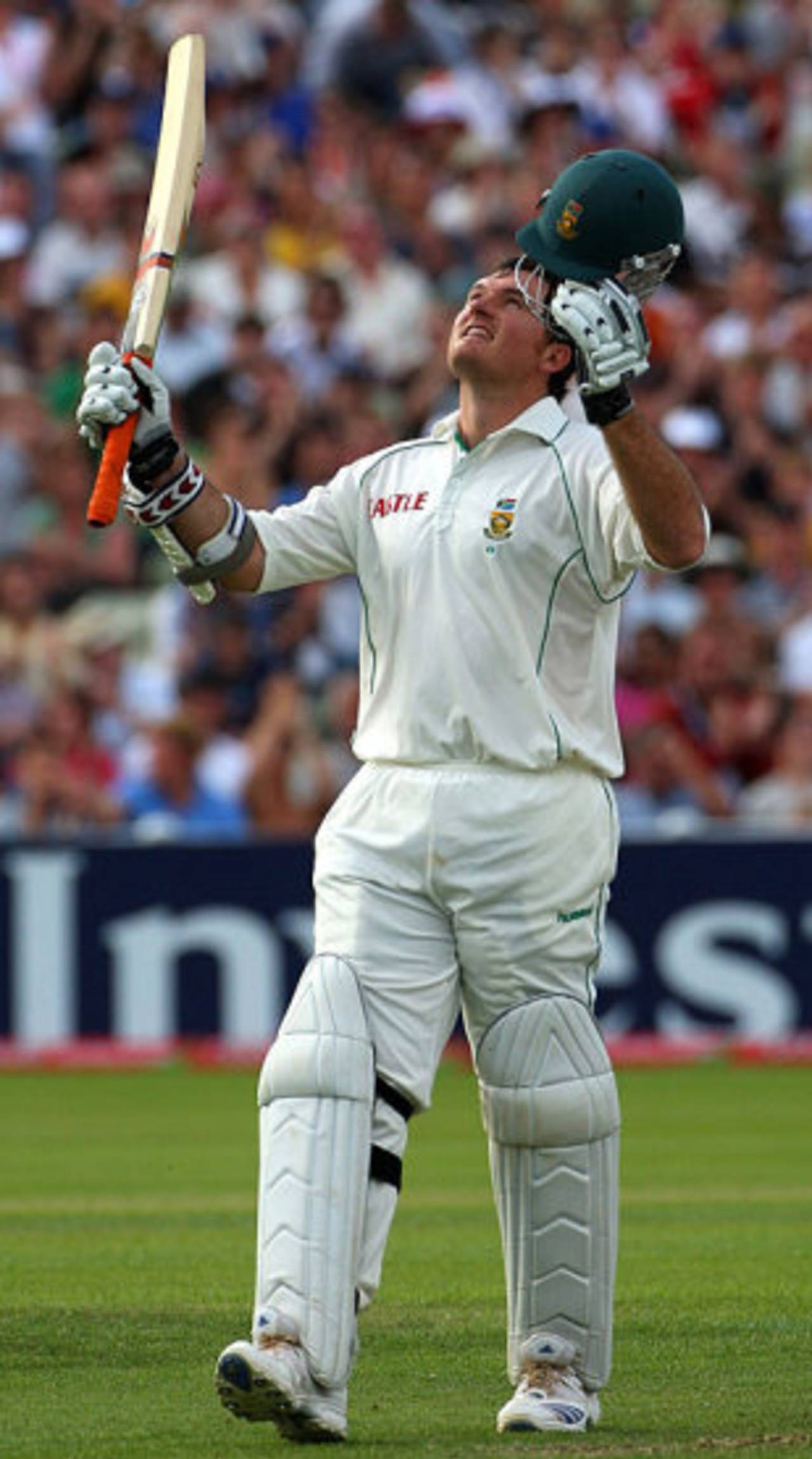If history repeats itself for
Graeme Smith on this England tour he will score a big hundred when it matters, lead a competitive team through an exciting, close-fought contest and the opposition captain will resign. While Smith is hoping for the first, saying that England tends to "bring the best out of me", and certain of the second, he is doubtful about the third - because of the current strength of the hosts.
"This is probably a better England team than they've had for a long time," Smith told ESPNcricinfo. "They've had some great teams and players but they seem to be a very professional unit so that makes it even tougher for us now."
That may mean that Andrew Strauss, who began the English summer under some pressure before scoring back-to-back hundred against West Indies, does not suffer the same fate as two of his predecessors. Nasser Hussain
stepped down as England captain during the 2-2 draw of 2003, while Michael Vaughan, who replaced Hussain, tearfully announced his
resignation in 2008 after Smith had led South Africa to their first series win in England since 1965.
Discussing the current England side, the words "well-drilled", "well-planned" and "methodical" have been used by Smith and the coach, Gary Kirsten. What it really means is that, under Andy Flower, England have put structures in place which South Africa's management thinks can match their own. That's why when you hear both captain and coach talk about either themselves or their opposition, they use the same phrases to describe both. "There's a lot of stability in their team now," Kirsten said of England. He said exactly that about the current South Africa unit.
England's strength comes in two waves, according to Smith. There is their ability to exploit their own conditions and also the buoyancy provided by home support. "They are a nation that plays very well at home," Smith said. "The ball swings and they adapt to the grounds well. Another factor is the crowds. The crowds are very vocal and really get behind them and that adds a lot to their team in terms of the way they play. I've felt bowlers have found an extra 20% in terms of energy or pace or ability with the crowds."
For touring teams, playing in England requires more adjustment than normal. Smith isolated three factors: the ball, the weather and the unrelenting pressure. "The Dukes ball reacts a little differently," Smith said. "Weather plays a part there as well. We're fortunate that we've always got the second half of the season where it's generally drier and a bit warmer. And then, mentally, there are a lot of things that come your way. At least, we've got guys who have experienced that before."
This time may be a little different on the last two counts. The Dukes ball will still be in action, staying harder, retaining its shine and moving around a lot more but England have experienced one of the wettest summers in recent memory, resulting in slower pitches. Although conditions are forecast to get better, South Africa saw the rain first hand on their arrival in Somerset. Additionally, South Africa have focused on the mental side of their game, with a training camp in Switzerland that tested their mettle against the Alps and raging rivers.
It was all done in a bid to be able to combat the "constant pressure over a period of time", which Smith said is unique to an England tour. "You know it's going to be tough. You know it's a place where you have to be at your best to win."
Kirsten believes the difference will come from whichever side is strong enough to prise an advantage, however small, and who can seize the important moments best. "We're doing our homework," he said. "If there are any areas we can exploit we're certainly going to punch right in there. That's what happens when you are playing quality opposition."
What may actually be the difference between the teams is their respective strength in adaptation. England have not lost a Test series at home since 2008, when they were beaten by South Africa. By contrast, South Africa have not lost on tour since 2006, when they were defeated in Sri Lanka. "We just have to adapt," Smith said. "The strength of the squad plays a crucial role because there are a lot of games in between Test matches. You really need to get the team to come together and be supremely focused. It's not going to be easy. To win this time, will be a real feather in the cap for this team."
Firdose Moonda is ESPNcricinfo's South Africa correspondent
